
Urine Test Developed for Vitamin-E-Related Disease Screening
Veterinarians could soon determine which horses are at risk of certain neurologic diseases through a simple urine test that reveals how a horse breaks down vitamin E.


Veterinarians could soon determine which horses are at risk of certain neurologic diseases through a simple urine test that reveals how a horse breaks down vitamin E.

The key lies in offering the horse other behaviors—backing, for instance—to perform besides head-butting.
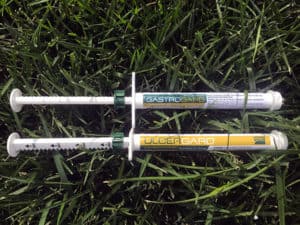
Researchers found the gastric ulcer drug might affect microbiomes less in horses than in humans and dogs.
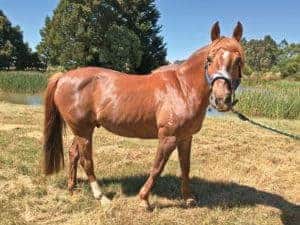
Learn how veterinarians diagnosed and managed six real-life equine Cushing’s cases that strayed from the classic scenarios.
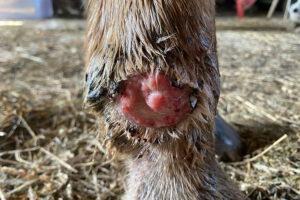
Indian researchers found resistant proud flesh became undetectable within weeks of treatment with the newly developed desert cotton leaf extract.

Compared to soaking or leaving hay dry, steaming conserves beneficial microorganisms found while targeting harmful bacteria and respiratory allergens.

Dr. Sue Dyson and her research team evaluated facial expressions and body language of FEI World Cup dressage horses and found that, overall, the animals experience little discomfort while competing.
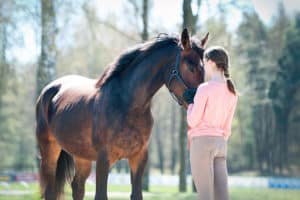
Italian researchers found that horses enter a positive emotional state when they see and interact with a familiar human who’s developed a good relationship with them.

Researchers found that horses 25 years and older are more likely to suffer chronic laminitis even if they aren’t showing obvious clinical signs of disease.

Horses might chew trees for a variety of reasons, such as boredom or nutritional deficiency. Learn about the benefits and risks, and how to protect your horses and your trees.

Changing your mare’s estrous cycle patterns can facilitate your breeding and performance plans. Learn about current options for owners who want to control their mares’ heat cycles.
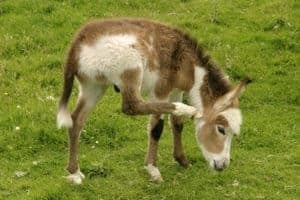
Researchers believe breeding two white-spotted donkeys could lead to embryonic loss, fetal abortion, or the death of a young foal.

A Canadian survey found horses offered solace during the pandemic, and lockdowns gave stable owners a respite to do farm repairs and organize their businesses.

Scientists developed an algorithm that predicts how susceptible individual species might be to SARS-CoV-2 infection. Find out where horses land.
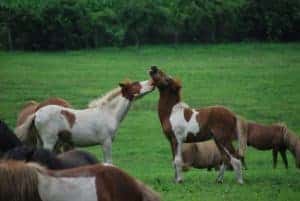
Researchers compared foals born and raised in “traditional” breeding programs that included stabling with those in a free-roaming herd.
The rider of an Arabian horse whose leg broke during an endurance race in France has been relieved of a 20-year sanction for doping and horse abuse, following the decision of an international appeals court.
Stay on top of the most recent Horse Health news with